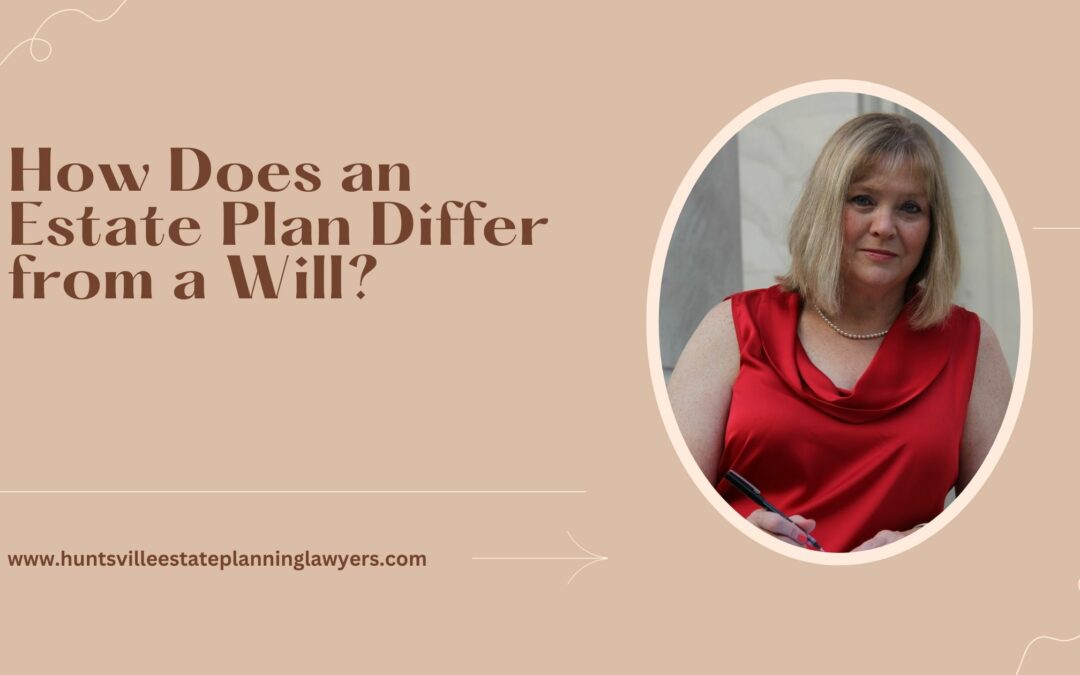Estate planning can be confusing for anyone unfamiliar with that term or concept. Some may have never heard “estate planning” but have heard of a last will and testament. Many people have asked if a Will is an “estate plan,” unsure of exactly what estate planning means. To clear some confusion and help you understand the differences, this blog defines an estate plan, discusses the importance of having an estate plan, and explains how a last will and testament fits within an estate plan.
What is an Estate Plan?
An estate plan is a comprehensive set of documents and strategies to manage and distribute assets during a person’s lifetime and after death, and to prepare for unexpected life events that may cause a person to be incompetent, incapacitated, or otherwise unable to make their own decisions. Estate planning can be a collaborative effort between your lawyer, accountant, and financial planner or advisor to structure the best strategy for you. For purposes of this blog, I will focus on the legal side of estate planning.
An estate plan also allows you to decide who can make decisions for you and handle your financial, legal, and medical affairs in the event you are unable to do any of these things yourself. Imagine being in a car accident that results in a lengthy hospital stay. Who will ensure the electricity doesn’t get shut off, the mortgage is paid, the kids still get to doctors’ appointments and school, and the auto and health insurance companies are working on your behalf? And, if your luck is like mine, when you are in the hospital and unable to talk on the phone, access your online account, or go to the bank, is precisely when some bozo will use your debit card on a shopping spree in another state.
What is the purpose of an estate plan?
The purpose and importance of an estate plan is that it allows you to make the decisions, while able, about the disposition of your assets at your death; that is, you get to decide who gets what. More importantly, you can appoint guardians for minor children to ensure if you are unable, they are raised by who you want to raise them. An estate plan allows you to be in control of those decisions. An estate plan also allows someone of your choosing to conduct your business and legal affairs, if you are unable to do so yourself, without the need of court intervention to appoint someone to do those things.
What are the 3 Major Components of an Estate Plan?
There are three major components, or elements, of every estate plan in Alabama. Those components are: Last Will and Testament, Power of Attorney, and Advance Directive for Health Care. These are the basic documents that should be part of every person’s estate plan, regardless of net worth. Admittedly, there may be some people who do not need a Will depending on how assets are structed. However, it is certainly best to have one and not need it than to need it and not have it.
An estate plan may also include a trust. Once considered only for wealthy people, trusts have quickly become a favorite tool of many clients, regardless of net worth, to transfer property more easily after death. A trust will likely be needed if you have young children and/or a special needs minor or adult child. Whether or not you need a trust, or will benefit from a trust, will be determined after consultation with your estate planning lawyer.
Last Will and Testament
This is a legal document that directs, per your wishes, who inherits your assets whether it’s personal property (jewelry, furniture, art, etc.) or real property (personal residence, vacation home, etc). It gives you control of who gets all that you have accumulated in your lifetime. You can specify which assets go to whom, such as family members, friends, charities, or organizations. You can intentionally exclude someone from inheriting your assets through correct verbiage in your will.
If you did not have this document, all your assets would pass to people pursuant to the State’s laws – and that may not be what you want for you family and assets. Perhaps you may be estranged from a child or want to give money to a charity, you can control those things in a Will, but if you don’t have a Will, that child will still inherit, and that charity is out of luck.
If you have young children, the Last Will & Testament can name Guardians, the people who will raise your children in the event both you and the other parent die. This is a crucial decision that you don’t want to leave to the courts to decide.
When do I need to make an estate plan?
Now. Regardless of net worth, if you are over nineteen (19) years of age, you need to have an estate plan. Many of us don’t want to think about, must less talk about, our eventual death. We find it morbid, scary, and emotionally charged, particularly if we have young children. The reality, though, is we can’t predict what will happen or when it will or may happen. We can’t control the other driver on the road, the hidden aneurism, or the undetected cancer growing and spreading.
Failing to have an estate plan, even if you have few assets and/or a low net worth, can cause conflict within your family and an extraordinary amount of time and money by your family to gain access to your bank account, transfer your house, or do a number of other things with your assets.
We all know the reality that “something” can happen at any moment. Our head tells us that, but too often our heart doesn’t want to deal with it. We tell ourselves we’ll get to “it” “one day” without accepting “one day” may be too late. Saying “it” rather than speaking out loud “estate plan” suppresses (maybe “sugarcoats” is better) the reasons why an estate plan is needed, as if not saying “estate plan” will somehow protect us from our eventual death. We don’t like facing our mortality or vulnerability.
Conclusion
An estate plan is the overall strategy and set of documents to manage and distribute assets, whereas a Will is a component – just one document – of that estate plan. If you are an Alabama resident and ready to start your estate plan, contact Huntsville Estate Planning Lawyer, LLC to schedule an appointment. Take that first step!






